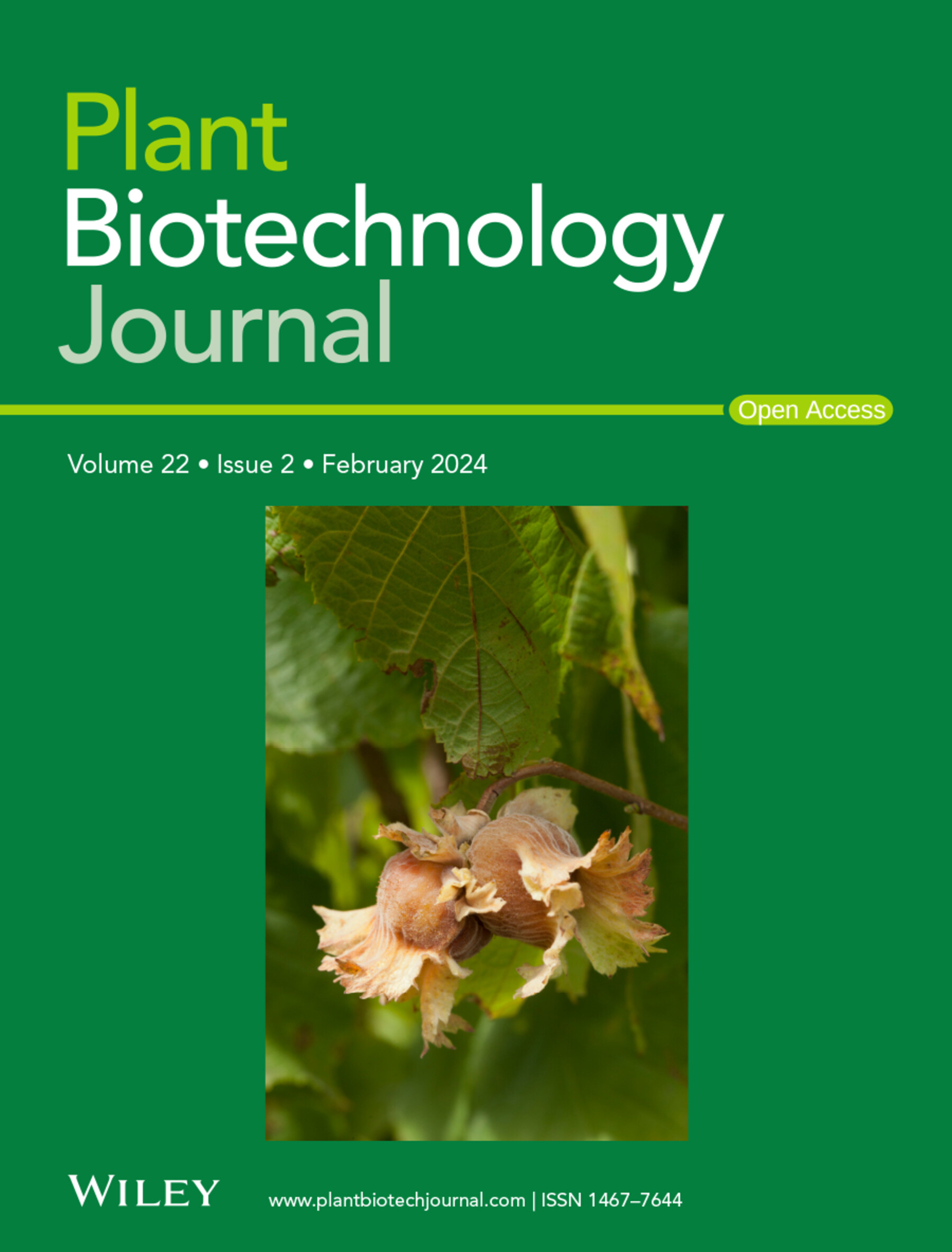Simplex and multiplex CRISPR/Cas9-mediated knockout of grain protease inhibitors in model and commercial barley improves hydrolysis of barley and soy storage proteins
IF 10.1
1区 生物学
Q1 BIOTECHNOLOGY & APPLIED MICROBIOLOGY
引用次数: 0
Abstract
Anti-nutritional factors in plant seeds diminish the utilization of nutrients in feed and food. Among these, protease inhibitors inhibit protein degradation by exogenous proteases during digestion. Through conventional and selection-gene-free genome editing using ovules as explants, we used simplex and multiplex CRISPR/Cas9 for studying the impact of chymotrypsin inhibitor CI-1A, CI-1B and CI-2, Bowman-Birk trypsin inhibitor, Serpin-Z4, and barley ɑ-amylase/subtilisin inhibitor on barley and soybean storage protein degradation. Mutants were generated in the commercial cultivar Stairway, having a high level of protease inhibition, and the barley model cultivar Golden Promise, having a lower inhibition level. In Golden Promise, all individual knockouts decreased the inhibition of the three proteases α-chymotrypsin, trypsin and the commercial feed protease Ronozyme ProAct significantly. The triple knockout of all chymotrypsin inhibitors further decreased the inhibition of α-chymotrypsin and Ronozyme ProAct proteases. Degradations of recombinant barley storage proteins B- and C-hordeins were significantly improved following mutagenesis. In Stairway, a single knockout of CI-1A almost compares to the effect on the proteases achieved for the triple knockout in Golden promise, uncovering CI-1A as the major protease inhibitor in that cultivar. The Stairway mutant demonstrated significantly improved degradation of recombinant barley hordeins and in the soybean storage proteins glycinin and β-conglycinin. The results of this study provide insights into cereal protease inhibitor genes and their negative effects on the degradation of barley storage protein and the most important plant protein from soybeans. The study suggests a future focus on plant protease inhibitors as a major target for improving feed and food protein digestibility.求助全文
约1分钟内获得全文
求助全文
来源期刊

Plant Biotechnology Journal
生物-生物工程与应用微生物
CiteScore
20.50
自引率
2.90%
发文量
201
审稿时长
1 months
期刊介绍:
Plant Biotechnology Journal aspires to publish original research and insightful reviews of high impact, authored by prominent researchers in applied plant science. The journal places a special emphasis on molecular plant sciences and their practical applications through plant biotechnology. Our goal is to establish a platform for showcasing significant advances in the field, encompassing curiosity-driven studies with potential applications, strategic research in plant biotechnology, scientific analysis of crucial issues for the beneficial utilization of plant sciences, and assessments of the performance of plant biotechnology products in practical applications.
 求助内容:
求助内容: 应助结果提醒方式:
应助结果提醒方式:


